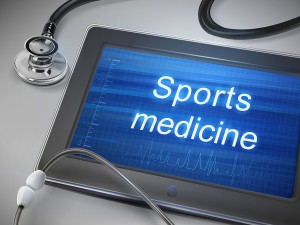
Concussion Tests Can Play a Large Role in Recognizing Traumatic Brain Injuries in Athletes
 The Centers for Disease Control and Prevention (CDC) reports1 that approximately 1.3 and 3.8 million recreation and sports-related mild traumatic brain injuries occur each year. A traumatic brain injury, or TBI, is an injury to the brain that results in a disruption in normal function. Participation in sports is among the leading causes of TBI, and under certain circumstances, people who sustain a TBI during a sporting event can recover for their injuries and other losses. In order to determine whether you have a claim, call our office today at 727-451-6900.
The Centers for Disease Control and Prevention (CDC) reports1 that approximately 1.3 and 3.8 million recreation and sports-related mild traumatic brain injuries occur each year. A traumatic brain injury, or TBI, is an injury to the brain that results in a disruption in normal function. Participation in sports is among the leading causes of TBI, and under certain circumstances, people who sustain a TBI during a sporting event can recover for their injuries and other losses. In order to determine whether you have a claim, call our office today at 727-451-6900.
Unrecognized TBIs can cause serious additional injury and may result in the development of severe and long lasting medical conditions
Athletes who sustain concussions or other relatively minor traumatic brain injuries in sports often have a positive prognosis if they are properly diagnosed, treated, and take measure to avoid repeated head trauma in the future. Unfortunately, however, a large number of athletes do not receive the necessary care to avoid future and even long-term effects of their TBIs. For example, for many years, management of the National Football League (NFL) and the National Hockey League (NHL) downplayed the risks of head trauma to players. Instead of providing adequate medical evaluations and treatment, players returned to play following a blow to the head. Even if they were diagnosed with a concussion and received treatment, the long-term effects of multiple concussions was concealed from the players so that they would return to playing and risk subsequent brain injuries.
Both former NFL and NHL players have brought legal action against the respective leagues, seeking damages for long-term TBI-related conditions such as:
- Chronic depression
- Early onset Alzheimer’s disease
- Dementia
- Early onset Parkinson’s disease
- Chronic encephalopathy (CTE)
In addition to long-term effects, a player faces risks of severe and even fatal injury if they receive a subsequent TBI before a prior TBI has completely healed. In such situations, a player may suffer second-impact syndrome,2 which causes extreme swelling or herniation of the brain and most victims do not survive without medical care within a few minutes of the second head trauma.
Mayo Clinic endorses new test
In a recent announcement,3 the Mayo Clinic stated that it was cooperating with manufacturer King-Devick Test, Inc. to make concussion testing on sidelines of sports games a mainstream occurrence. The sideline testing will especially be promoted for schools and other youth sports, as younger athletes have a greater risk of suffering a concussion and often require more extensive recovery time that adult athletes. The test developed by King-Devick Test can be administered following any type of head trauma during a sports game or practice. In approximately two minutes, the test will alert coaches, trainers, or medical staff that a player should be removed from game play and should be fully evaluated. By giving concrete evidence that a player should not return to play, the Mayo Clinic hopes to reduce the number of complications and neurological issues that may develop if an athlete suffers repeat TBI.
Once the test is widely available to schools, it will be important for coaches and other authority figures to make the proper determination regarding an athlete showing signs of concussion. If a coach fails to remove an athlete with a possible concussion from game play, they should be found negligent and should be responsible for any resulting losses.
Contact a Tampa TBI law firm to schedule a free consultation with one of our attorneys
When concussions or other TBIs are the result of the negligence of another person or party, victims can often recover significant compensation for their losses. The attorneys of the Dolman Law Group have been helping people injured in preventable accidents since 2009 and are knowledgeable personal injury advocates who work hard to ensure that each client we represent gets the full and fair value of his or her claim. We use a contingent fee arrangement for all of our personal injury clients, meaning that we do not collect legal fees unless we successfully recover on your behalf. To set up a free, no-obligation case evaluation with a Tampa brain injury lawyer, call our office today at 727-451-6900.
Dolman Law Group
800 North Belcher Road
Clearwater, FL 33756
727-451-6900
https://www.dolmanlaw.com/legal-services/brain-injury-attorneys/
References:
1 http://www.cdc.gov/concussion/headsup/pdf/Facts_for_Physicians_booklet-a.pdf
2 http://www.ncbi.nlm.nih.gov/pmc/articles/PMC2672291/
3 http://newsnetwork.mayoclinic.org/discussion/mayo-clinic-and-king-devick-test-announce-licensing-agreement-to-sideline-concussion-testing/





